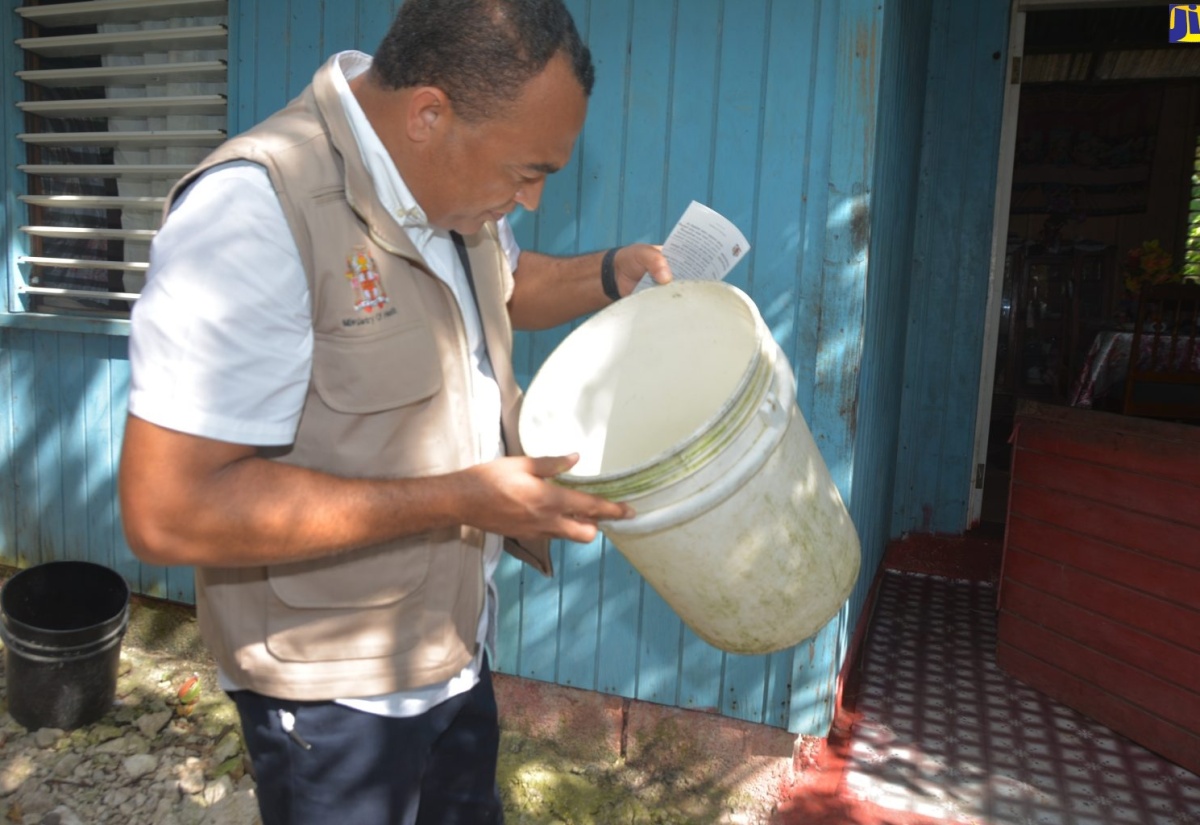Westmoreland to Get Additional Vector Control Workers
By: , January 7, 2019The Key Point:
The Facts
- Dr. Tufton toured the community with Vector Control Coordinator at the Westmoreland Health Department, Ryan Morris; Chief Public Health Inspector for the parish, Steve Morris, and several vector control workers.
- Symptoms of dengue include sudden onset of high fever with severe headache, fatigue, pain behind the eyes, muscle, bone or joint pain, skin rash and vomiting or feeling nauseous.
The Full Story
Minister of Health, Dr. the Hon. Christopher Tufton, says the vector control unit at the Westmoreland Health Department will get additional temporary workers, to assist in the elimination of mosquito breeding sites in the parish.
“We are going to add some additional workers through the Housing, Opportunity, Production and Employment (HOPE) Programme and the Ministry of Health Vector Support Programme. They currently have 33 temporary and nine permanent staff, and we will add another 20 or 25 to give them better and fuller coverage of the parish,” Dr. Tufton informed, after touring the Aldyar community in Westmoreland, on January 4.
The Minister also noted that additional vehicles will be provided to ramp up vector control efforts in the parish.
Dr. Tufton pointed out that Westmoreland has had over 100 suspected cases of dengue fever in the last year, as well as four confirmed cases.
“We have identified the areas that are particularly vulnerable and Aldyar is one of these communities. One of the problems in these areas is that people use water containers which are oftentimes not covered and they become fertile breeding ground for the Aedes Aegypti mosquito. We continue to urge citizens to look in and around the homes to ensure that there are no breeding sites,” the Minister said.
Dr. Tufton toured the community with Vector Control Coordinator at the Westmoreland Health Department, Ryan Morris; Chief Public Health Inspector for the parish, Steve Morris, and several vector control workers.
For his part, Mr. Ryan Morris expressed gratitude to the Minister “for taking the time to have discussions with us, and for his pledge of increasing the number of workers and motor vehicles for the vector control unit, as we have been doubling our efforts to destroy mosquito breeding sites in the parish.”
Meanwhile, Mr. Steve Morris said there has been a drastic change with the 33 persons recently added to the unit through the HOPE Programme, as it relates to the destruction of mosquito breeding sites, and he is hoping that the additional 20 to 25 workers will further bolster the unit.
The Aedes Aegypti mosquito is responsible for the spread of the dengue, Zika and Chikungunya viruses.
Symptoms of dengue include sudden onset of high fever with severe headache, fatigue, pain behind the eyes, muscle, bone or joint pain, skin rash and vomiting or feeling nauseous.
To prevent the disease, persons are advised to eliminate mosquito breeding sites by getting rid of items that collect water (old drums, used tyres and plastic containers); installing mosquito nets over beds; wearing long sleeve shirts and pants outdoors; using DEET (mosquito repellant); and regularly changing water in animal and pet containers.


